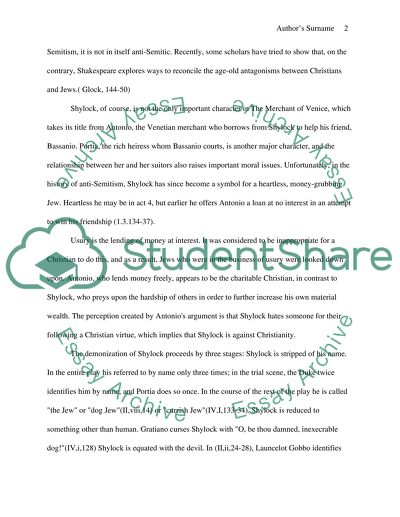Cite this document
(“Shakespeare's The Merchant of Venice and antisemitism as shown in the Essay”, n.d.)
Retrieved from https://studentshare.org/miscellaneous/1510670-shakespeares-the-merchant-of-venice-and-antisemitism-as-shown-in-the-treatment-of-shylock
Retrieved from https://studentshare.org/miscellaneous/1510670-shakespeares-the-merchant-of-venice-and-antisemitism-as-shown-in-the-treatment-of-shylock
(Shakespeare'S The Merchant of Venice and Antisemitism As Shown in the Essay)
https://studentshare.org/miscellaneous/1510670-shakespeares-the-merchant-of-venice-and-antisemitism-as-shown-in-the-treatment-of-shylock.
https://studentshare.org/miscellaneous/1510670-shakespeares-the-merchant-of-venice-and-antisemitism-as-shown-in-the-treatment-of-shylock.
“Shakespeare'S The Merchant of Venice and Antisemitism As Shown in the Essay”, n.d. https://studentshare.org/miscellaneous/1510670-shakespeares-the-merchant-of-venice-and-antisemitism-as-shown-in-the-treatment-of-shylock.


